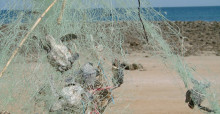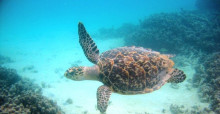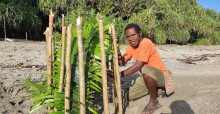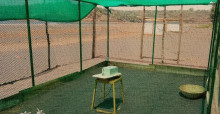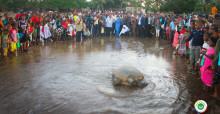Of the migratory species listed under the Convention on Migratory Species, 64 are aquatic mammals, 54 are fish, and 9 are reptiles, covering many diverse species such as whales, sharks, and turtles. Their migratory ranges include rivers, estuaries, beaches, seagrass meadows, coral reefs, coastal zones, the open ocean, deep-water trenches, and seamounts - to name but a few. They occur in all climatic zones, all oceans, and many inland water systems. The threats they face are manifold and include overexploitation, habitat loss and degradation, pollution, and climate change.




